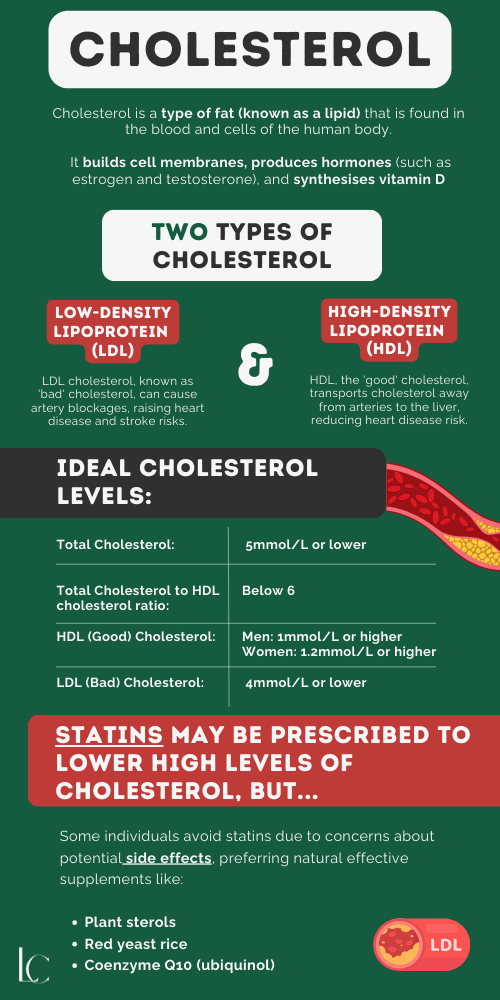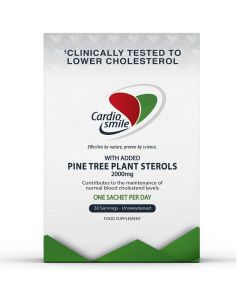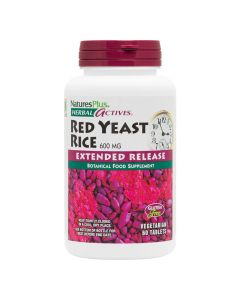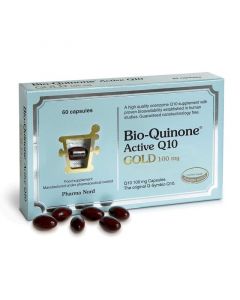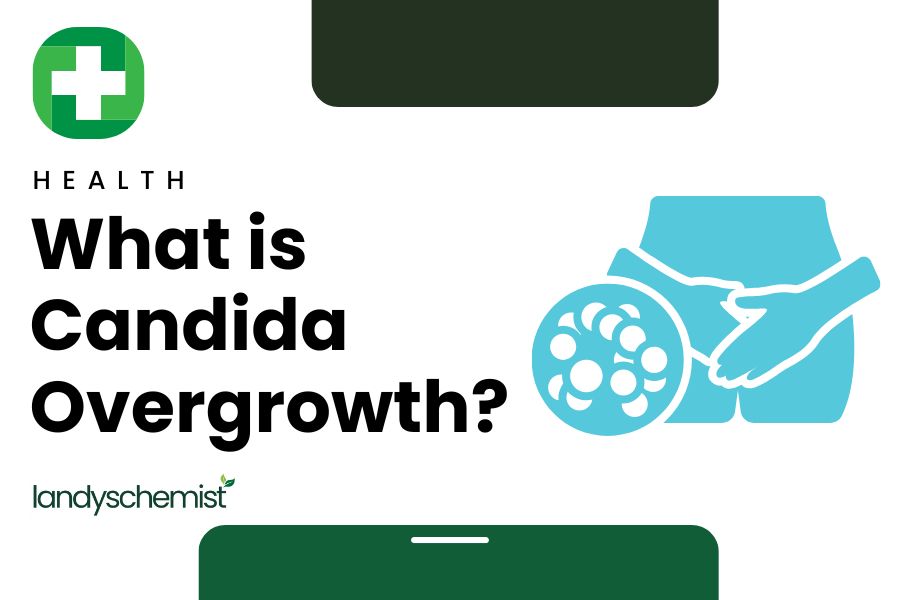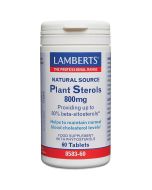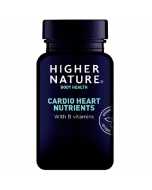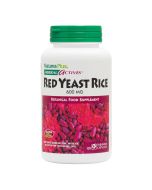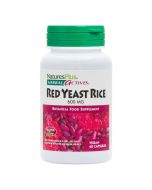
What is Cholesterol in simple terms?
Cholesterol is a buzz word which is discussed frequently. We are always told to watch our cholesterol levels but the trouble is that it can only be properly measured by a blood test. In this article we are going to explore what cholesterol actually is and also look at some simple solutions in terms of how we can keep it under control, both naturally and using supplemens.
What is cholesterol?
Cholesterol is a type of fat (known as a lipid) that is found in the blood and cells of the human body. It is essential for building cell membranes, producing hormones (such as estrogen and testosterone), and synthesising vitamin D.
As you can probably tell from this description cholesterol doesn’t strictly sound so terrible. This raises the question of why doctors are always so worried about it.
What are the different kinds of cholesterol?
Cholesterol splits into two different types:
Low-Density Lipoprotein (LDL):
This type is often referred to as "bad" cholesterol. High levels of LDL cholesterol can lead to the buildup of plaque in the walls of arteries, narrowing them and restricting blood flow. This can increase the risk of heart disease and stroke.
High-Density Lipoprotein (HDL):
Known as "good" cholesterol, HDL carries cholesterol away from the arteries and back to the liver, where it is either broken down or passed out of the body as a waste product. Higher levels of HDL cholesterol are associated with a lower risk of heart disease.
Where does bad (LDL) cholesterol come from?
- Diet: Foods high in saturated and trans fats can raise LDL cholesterol levels. Saturated fats are found in animal products such as fatty cuts of meat, full-fat dairy products, and certain oils like coconut oil and palm oil. Trans fats are often found in processed and fried foods, baked goods, and margarine.
- Internal Production: The liver produces LDL cholesterol and releases it into the bloodstream. Genetic factors, as well as dietary choices, can influence the liver's production of LDL cholesterol.
Where does good (HDL) cholesterol come from ?
- Physical Activity: Regular physical activity can increase HDL cholesterol. Exercise prompts the body to produce more HDL cholesterol, which helps remove LDL cholesterol from the bloodstream.
- Healthy Fats: Certain unsaturated fats, particularly monounsaturated and polyunsaturated fats, found in foods like olive oil, avocados, nuts, and fatty fish, can increase HDL cholesterol levels. These fats are considered heart-healthy and can improve the overall cholesterol profile.
- Moderate Alcohol Consumption: Some studies suggest that moderate alcohol consumption, particularly of red wine, can increase HDL cholesterol. However, it's important to note that excessive alcohol consumption can have negative health effects.
- Genetics: Genetic factors can influence HDL cholesterol levels. Some people may have a genetic predisposition to naturally higher levels of HDL cholesterol.
What cholesterol level requires medication?
Cholesterol levels that warrant medication, such as statins, are determined based on an individual's overall risk of cardiovascular diseases, not just cholesterol numbers alone. The decision to prescribe cholesterol-lowering medication is typically made after considering multiple factors, including:
- LDL Cholesterol Levels: Generally, if LDL cholesterol levels are very high (above 190 mg/dL), medication may be considered, especially if lifestyle changes have not effectively lowered the levels.
- Existing Health Conditions: Individuals with existing cardiovascular diseases (such as heart disease or stroke) or diabetes often require cholesterol-lowering medication, regardless of their LDL levels.
- Risk Factors: Other risk factors such as high blood pressure, smoking, family history of heart disease at a young age, and certain medical conditions might lower the threshold for considering medication.
- 10-Year Risk of Cardiovascular Events: Doctors often use tools like the Atherosclerotic Cardiovascular Disease (ASCVD) risk calculator to estimate a person's 10-year risk of heart attack or stroke. If the risk is high, medication might be recommended.
- Response to Lifestyle Changes: If lifestyle changes (such as dietary modifications, exercise, and weight loss) do not effectively lower cholesterol levels to the desired range, medication might be necessary.
What is a normal cholesterol level?
As you have probably discovered already, cholesterol is not quite as simple as one level being acceptable and another level being dangerous.
When it comes to Cholesterol it’s not just the overall level that is important but also the ratio of good to bad cholesterol that matters. Broadly speaking here is what the NHS recommends:
Total Cholesterol – 5mmol/L or lower
Total Cholesterol to HDL cholesterol ratio – Below 6
HDL (Good) Cholesterol - 1mmol/L or higher for men, 1.2mmol/L or higher for women
LDL (Bad) Cholesterol – 4mmol/L or lower
If your levels are worse than these then it is possible a doctor will advise you to consider statins.
What are Statins?
Statins are a type of medicine commonly prescribed to lower high levels of cholesterol in the blood.
How do Statins work?
Statins work by inhibiting the enzyme HMG-CoA reductase, which plays a central role in the production of cholesterol in the liver. By blocking this enzyme, statins reduce the liver's ability to produce cholesterol, leading to lower levels of LDL (low-density lipoprotein) cholesterol, often referred to as "bad" cholesterol.
Statins can also modestly raise levels of HDL (high-density lipoprotein) cholesterol, often referred to as "good" cholesterol. Additionally, they have anti-inflammatory and other beneficial effects on the blood vessels, which contribute to their overall cardiovascular benefits.
What can I take instead of statins to lower my cholesterol?
People sometimes prefer to avoid statins for a range of reasons. In this case there are a range of natural supplements that have been used to help reduce cholesterol.
Plant Sterols (Phytosterols)
Planet Sterols are found in margarine and are the reason margarine helps to lower cholesterol.
When consumed as part of a balanced diet, plant sterols can help lower LDL (low-density lipoprotein) cholesterol levels, often referred to as "bad" cholesterol. Here's how plant sterols work to lower cholesterol:
- Competitive Inhibition: Plant sterols compete with dietary cholesterol and cholesterol produced by the liver for absorption in the intestines. When plant sterols are consumed, they are absorbed in the intestines instead of cholesterol. This reduces the amount of cholesterol that enters the bloodstream.
- Reduced Cholesterol Absorption: Plant sterols interfere with the absorption of cholesterol in the small intestine. By blocking the absorption of cholesterol, plant sterols help prevent it from entering the bloodstream and contributing to the buildup of plaque in the arteries.
- Increased Excretion: Plant sterols can also promote the excretion of cholesterol from the body, further reducing the overall cholesterol levels.
To experience the cholesterol-lowering benefits, it's important to consume plant sterols regularly. Irregular consumption can have a limited effect.
Health Note: There are extremely rare cases of individuals who hyper-absorb sterols. There are very few symptoms of this condition so if you decide to start taking plant sterols it's worth getting a blood test within the first three months of starting to ensure your body is handling them comfortably.
Red Yeast Rice
Red Yeast Rice is a fermented rice traditionally used in East Asia. It contains naturally occurring compounds called monacolins, one of which, monacolin K, is identical to the active ingredient found in the cholesterol-lowering medication lovastatin. Monacolin K works by inhibiting the enzyme HMG-CoA reductase, which is involved in the production of cholesterol in the liver.
It's worth noting that Red Yeast Rice products sold in the USA don't contain any monacolins. This means that Red Yeast Rice products available in the USA are unlikely to have any impact on cholesterol levels.
Co-Enzyme Q10 (Ubiquinol)
Coenzyme Q10 (CoQ10) is a naturally occurring antioxidant that is found in every cell of the body. It plays a vital role in the production of energy and serves as an important cofactor in the process of cellular respiration.
As an antioxidant, COQ-10 helps neutralize harmful free radicals in the body. Oxidation of LDL cholesterol is a crucial step in the development of atherosclerosis (hardening of the arteries). By reducing the oxidation of LDL cholesterol, CoQ10 may help prevent the formation of plaque in the arteries, reducing the risk of cardiovascular diseases.
Interestingly, people who prescribed statins are regularly advised to start taking COQ-10 or Ubiquinol supplements because statins can reduce CoQ10 levels in the body.
What can I do to naturally reduce my cholesterol?
If you are looking to avoid prescription medicine and natural supplements there is an alternative based on a strict diet and exercise.
1. Adopt a Heart-Healthy Diet:
- Reduce Saturated and Trans Fats: Limit your intake of foods high in saturated and trans fats. These include fatty cuts of meat, full-fat dairy products, fried foods, and commercially baked goods.
- Choose Healthy Fats: Include sources of unsaturated fats in your diet, such as olive oil, avocados, nuts, and fatty fish. These fats can improve your cholesterol profile.
- Increase Soluble Fiber: Foods high in soluble fiber, such as oats, barley, fruits, vegetables, and legumes, can help lower LDL cholesterol.
- Eat More Plant Sterols: Foods fortified with plant sterols or stanols can help block the absorption of cholesterol in the intestines. These are often found in certain margarines and orange juice.
- Increase Omega-3 Fatty Acids: Omega-3 fatty acids, found in fatty fish like salmon, flaxseeds, and walnuts, have heart-healthy benefits, including improving cholesterol levels.
2. Regular Physical Activity:
- Aerobic Exercise: Engage in regular aerobic exercises like brisk walking, jogging, swimming, or cycling. Aim for at least 150 minutes of moderate-intensity aerobic activity per week.
- Strength Training: Incorporate strength training exercises two or more days a week. Building muscle can help improve your overall metabolism and cardiovascular health.
3. Maintain a Healthy Weight:
- Lose Excess Weight: Losing even a modest amount of weight can significantly improve cholesterol levels. It can also lower your risk of other chronic conditions.
4. Quit Smoking:
- Quit Smoking: If you smoke, quitting can improve your HDL cholesterol levels and overall cardiovascular health.
5. Limit Alcohol Consumption:
- Moderate Alcohol: If you choose to drink, do so in moderation. For men, moderate drinking is generally considered up to two drinks per day, while for women, it's up to one drink per day.
6. Manage Stress:
- Stress Management: Chronic stress can contribute to heart disease. Practice relaxation techniques such as meditation, yoga, or hobbies to manage stress.
